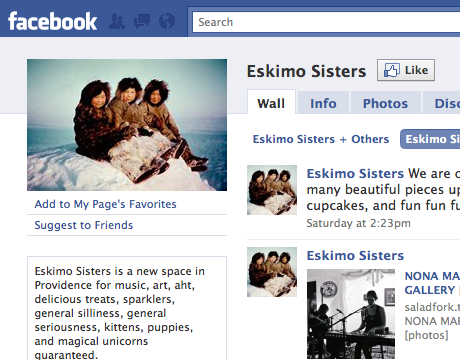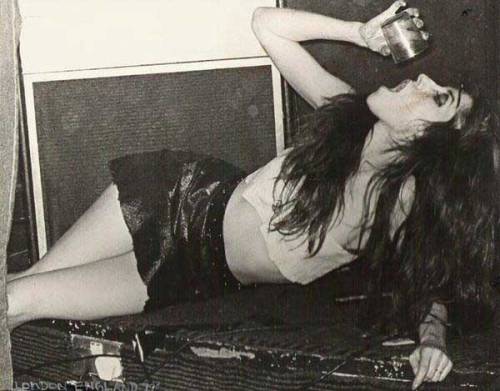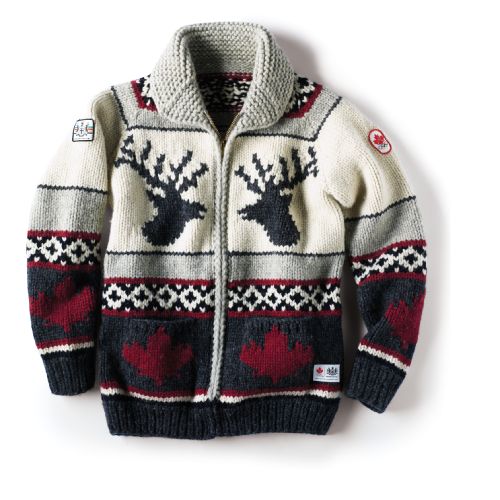 [a polaroid of a person outdoors, with long brown hair wearing a colourful native american inspired "war bonnet" and bright red lipstick. they are covering their eyes with the back of their hands and is expressionless. the text underneath the polaroid reads "Until mainstream society takes Natives seriously, it won't take Native issues seriously. Carticatures, mascots, costumes and cartoons don't need running water, after all." Sheena Rotman (The Signal)]
[a polaroid of a person outdoors, with long brown hair wearing a colourful native american inspired "war bonnet" and bright red lipstick. they are covering their eyes with the back of their hands and is expressionless. the text underneath the polaroid reads "Until mainstream society takes Natives seriously, it won't take Native issues seriously. Carticatures, mascots, costumes and cartoons don't need running water, after all." Sheena Rotman (The Signal)]
a page from kate burch's zine, head dressin the year since i started this blog, the issue that has generated the most debate and discussion had easily been
the critical fashion lover's guide to cultural appropriation. now that halloween is just around the corner, seeing images of white women in hypersexualized racist "
indian princess" costumes is sadly serving as a reminder that this is issue will not go away without a fight. but we can keep the conversations going. sadly, today i feel disappointed, disenchanted, exhausted. it sucks that we still have to keep defending the very basics of
why we think people should be thinking about cultural appropriation in the first place. here i go again.

[cartoon: in the first panel, a girl sits in a judge's stall with a gavel. a cat wearing glasses is dressed as a mariachi holding a bag that reads "taco taco." the judge rules "cultural appropriation." this continues with many foods, pizza, "hot stuff," "der very wurst," and a 3 potato salad. the last three panels are as follows: the judge watches patiently as cat sighs and reaches into a mcdonald's bag. in the next panel, the judge is eating fries and cat is eating a burger. the judge says, "it's so sad that the whole world eats mcdonalds." ]
my first reminder that the spirit of cultural appropriation is alive and well was when i was looking for a laugh: this week, i was disappointed with the
latest cat & girl comic. i used to really enjoy their sardonic sense of humour, but this... it just kind of rubs me the wrong way. it almost seems to propogate this attitude of "you can't win" if you think critically about cultural appropriation. at the same time, i think i could understand
why it would be funny to some people (perhaps it is a jab at the imposed dominance of american fast food culture on a global scale?).
but in the end, the imagery of the judge ruling wether or not a food item can be considered cultural appropriation only serves to remind me that it is really annoying/emotionally
exhausting to constantly have to be on the defensive. to constantly have to explain the reasons why cultural appropriation, whether it be happening in a mall food court or on a fashion runaway, is potentially problematic and needs to be challenged. a common reaction when the subject comes up is "who made you the judge of everyone?"
sigh. contrary to what many naysayers may believe, no, i don't sit in front of my computer actively searching for white girls wearing headdresses to argue with and judge.
rather, it's that images of models, of clothing catalogues, and of white girls in headdresses at concerts that attack and offend
us: those of us who feel like these conversations are important to be having, that we have to ask these questions. i am fed up with it. fed up with seeing "Othered" cultures reduced to shitty stereotypes for uncritical (mostly) white people to buy into, as a product, and then to attack
me when i ask them to think about what they are wearing, when i ask them why they choose to wear what they wear. is that such an offensive question? is it really us who are so hypersensitive and who take things "too seriously," or is it you who just wants to refuse to think for two seconds?
which leads me to katrina richardson's amazing article,
Accosted by racist costumes. in it, she writes frankly and honestly about getting upset at an art festival after not only seeing two girls wearing headdresses, but walking into an art gallery called "The Eskimo Sisters." unsurprisingly, the gallery is not in fact run by Inuit women, or have any attachment or relevance to Inuit culture whatsoever (which is sometimes mistakenly referred to as Eskimo, which for the record has been
frowned upon by Inuit communities and was largely removed from popular nomenclature in Canada and Greenland since the 1970s but is still used in Alaska). rather, according to their facebook page,
Eskimo Sisters is a new space in Providence for music, art, delicious treats, sparklers, general silliness, general seriousness, kittens, puppies, and magical unicorns.
oh, and i suppose the magical northern "Eskimo" people fall right into that category, too! what a perfect name! /bitchy sarcasm. to top it off, the term "Eskimo Sisters" supposedly refers to two women who have slept with the same man. we all know how much we love our racial naivety with a side order of hypersexualization, don't we?
richardson ends up confronting the two girls wearing a headdress, and asking them why they are wearing them. her article is definitely worth taking the time to read it in its entireity, but here are two important quotes:
I understood why the headdresses seemed like an attractive accessory. People want something closer to the ethereal and the spiritual. To look ethnic and feel closer to nature. But is their whim to play earthy mystic for a night greater than mine to enjoy an evening without feeling accosted by racist costume?
she concludes her powerful article with this statement:
I may grow wiser and regret my actions, but even if those women do remain clueless and forget everything I said, I at least made them uncomfortable for five minutes of their night, and right now, that's worth it, to me.
for her sake, mine, and other people who have been taking up this fight, i hope she is right. her experience reminds me of a lot of my own, of my internalized racism as a mixed race french-canadian/abenaki kid growing up. of playing cowboys and indians and always being relegated to the role of the "indian." of my own family's erasure and active denial of our native roots.
mainly, it reminds me
last night. i went to see
xiu xiu, a free concert organized by the city's university radio station
CHYZ 94,3 and i was sadly reminded why i have stopped going to live shows. the entire night, i was distracted by this blonde girl wearing a headband with a few feathers sticking out, and blue paint smeared underneath her cheeks. all her friends had the same paint across their face, and at different points they were passing around the "native" headband.
it reminds me of last halloween, when i spent a half an hour in the bathroom calming myself down after a teenage girl i'd met a few times through mutual friends jumped up on stage to dance with we are wolves dressed as an "indian princess."
it reminds me of
all of these times i end up feeling like shit, and have to convince myself that this is just me overreacting. all of these times i overthink the entire situation, wondering what i should do, what i could say, to simply encourage people to maybe think twice before they leave the house dressed up as an outdated racist stereotype.
so i'm trying to think of productive ways we can confront these issues, have these conversations with strangers, without emotionally exhausting ourselves or decreeing ourselves the Official Judge and Jury of all things Cultural Appropriating. here's my first idea.
this week, i got a lovely gift in the mail from kate burch: a zine called Head Dress. earlier this summer, kate asked me if she could quote me in it and i was very curious to see how it would turn out. now that i have a copy to myself, i'm
really happy to have been a small part of what is a very informative yet simple to-the-point zine. when i asked her where i could suggest my readers buy it, she simply said that she wanted it to be more of a "public service announcement" than making money. so! print out a bunch of your own copies and drop them off where you think they might be most thought-provoking. a few ideas:
- thrift stores where you regularly see "hipsters"
- coffee shops in urban areas
- music venues/festivals where you have seen aforementioned cultural appropriating hipsters
- offending stores that sell clothes labelled "tribal" or "native" or "cherokee" (urban outfitters, forever21, bluefly, etc)
- hell, you could even mail copies to offending designers if you wanted! at fashion design schools.
suggest more places in the comments!
as for distribution, i've got québec city covered (going to translate it this weekend), and kate dropped a bunch around nyc, so readers everywhere else! arm your photocopiers! spread the word. it's nice to think these conversations can leave the blogosphere and can perhaps influence critical thinking. where do you guys live? can someone promise to cover kensington market in toronto? mile end in montreal? bushwick in brooklyn? portland?
so that's what's on my mind lately... i'll leave you with an few excerpts from the most
recent post at
my culture is not a trend in response to hate mail they've been receiving.
Stop being angry about the distant past. The people who colonized you are dead. Get over it. Okay, I’ll play your game.
Lets pretend, and put aside the past, the genocide, the theft of land, peoples and language - all things deemed to have happened “long ago.” I’m not going to address these at all.
So here we are- modern day, new slate.
The act of cultural drag is still a problem. This is because systematic racism of Native American people still exists, and is overwhelmingly aggressive. We are still encountering it every day of our lives - in textbooks, at school, going shopping, using government facilities, interacting with the police, with health care systems, with our religious freedom, with the colour of our skin - we are met with derision and antagonism for our mere existence. With words used to keep us in our place. This is not ancient history, it is the every-day existence of a people who are still alive.
...When you choose to dress up like one of us, you erase us. You transform a group of doctors, writers, trades people, teenagers, mothers, fathers, singers — individuals, into one absurd caricature unworthy of respect, identity - autonomy. ...If our countries start to think of us as human beings, then our deeper issues may one day come to resolution as well. Just because my mission seems trivial - what impact could fashion possibly have?- doesn’t mean I’m not actively fighting the system that imposed the ideologies in the first place.
LINKS:
Kate Burch's tumblr
Download at zine library here.
Accosted by racist costumes: Expressing displeasure with something no one else has a problem with means revealing yourself as "the other" by Katrina Richardson
"Eskimo Sisters" in Indian headdresses by Newspaper Rock: Where Native America meets pop culture
Eskimo on Wikipedia
Ohnotheydidn't's feminist livejournal community is currently having a discussion aboutcultural appropriation.
my culture is not a trend
OFFENSIVE HALLOWEEN SHIT I RECOMMEND NOT LOOKING AT:
Adult Indian Squaw Wig with Braids



























